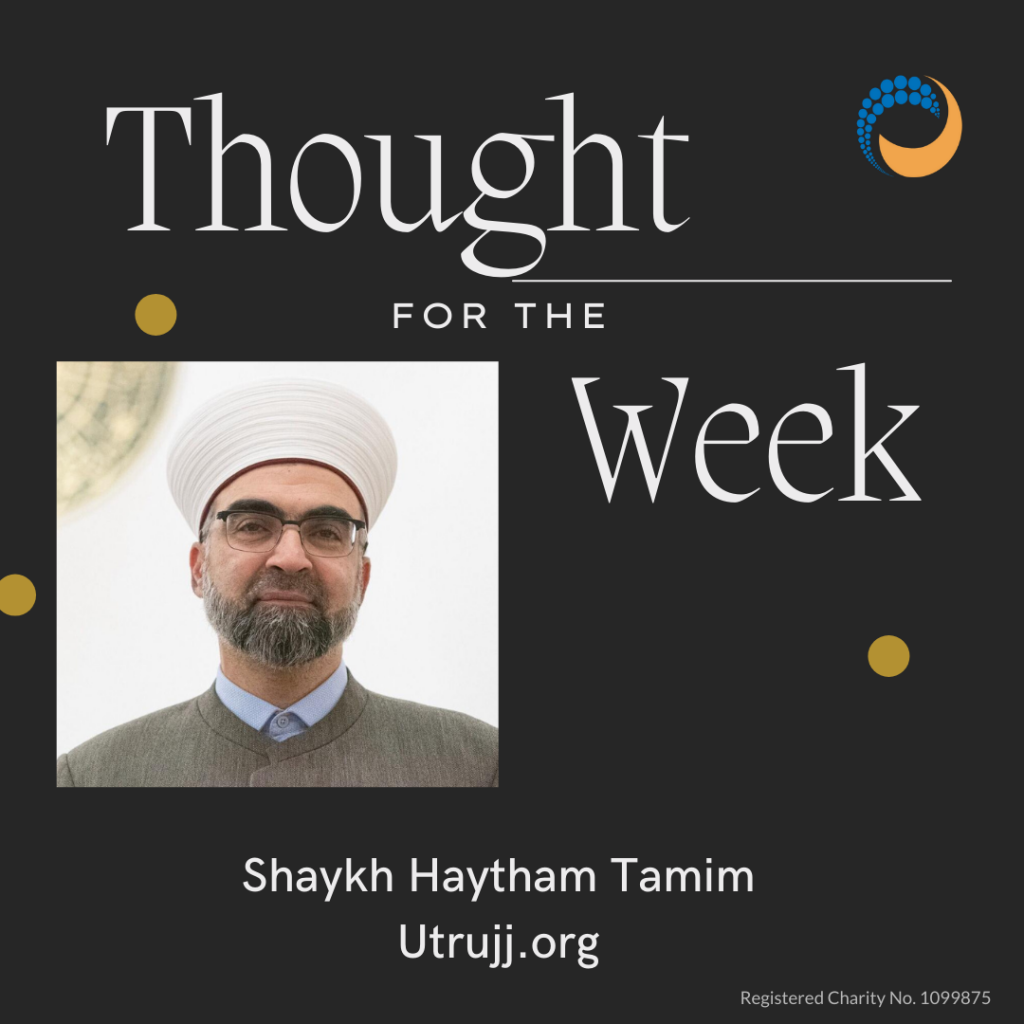Psyching up for Ramadan

Allah Almighty said in the Quran that fasting is an obligation in this famous ayah, but when was this ayah revealed and when was fasting made an obligation?
يَا أَيُّهَا الَّذِينَ آمَنُوا كُتِبَ عَلَيْكُمُ الصِّيَامُ كَمَا كُتِبَ عَلَى الَّذِينَ مِن قَبْلِكُمْ لَعَلَّكُمْ تَتَّقُونَ
O you who believe! Fasting is prescribed for you, as it was prescribed for those before you, that you may become righteous. [2:183]
Though we think of Islam as the five pillars, they were not revealed at the same time. The first pillar was tawheed, coming straight after the beginning of the revelation. The obligation of salah was revealed in Makkah, 18 months before Hijrah, after the siege had been lifted, during the ascension of the Prophet (peace be upon him) to the heavens, during the Isra wal Miraj.
The obligation of fasting came later, in the second year after the believers had migrated to Madinah. It was revealed in the month of Sha’ban. There are various narrations that say zakah came third and fasting came fourth, but they were both revealed in the second year of Hijrah during Sha’ban.
The obligation came just was before the Battle of Badr, which also took place in the second year of Hijrah and in fact the Prophet (peace be upon him) was fasting when he approached Badr, because the plan had not been to fight. When they approached the battle, the Prophet (peace be upon him) told them to break their fast so they would have more energy and strength when they went into Battle.
‘Umar bin al-Khattab (may Allah be pleased with him) said there were two occasions when the believers were on a military campaign during Ramadan. The first was their first battle – Badr and the other one was during the Conquest of Makkah:
We went out on two campaigns with the Messenger of Allah ﷺ during the month of Ramadan, the day of Badr and the conquest (of Makkah), and we broke the fast in both cases. [Tirmidhi and Ahmad]
Abu Sa’id al-Khudri (Allah be pleased with him) he said:
وروى مسلم (1120) عن أبي سَعِيدٍ الْخُدْرِيَّ رَضِيَ اللهُ عَنْهُ قَالَ : ” سَافَرْنَا مَعَ رَسُولِ اللهِ صَلَّى اللهُ عَلَيْهِ وَسَلَّمَ إِلَى مَكَّةَ وَنَحْنُ صِيَامٌ ، فَنَزَلْنَا مَنْزِلًا ، فَقَالَ رَسُولُ اللهِ صَلَّى اللهُ عَلَيْهِ وَسَلَّمَ: (إِنَّكُمْ قَدْ دَنَوْتُمْ مِنْ عَدُوِّكُمْ، وَالْفِطْرُ أَقْوَى لَكُمْ ) فَكَانَتْ رُخْصَةً، فَمِنَّا مَنْ صَامَ ، وَمِنَّا مَنْ أَفْطَرَ، ثُمَّ نَزَلْنَا مَنْزِلًا آخَرَ، فَقَالَ: ( إِنَّكُمْ مُصَبِّحُو عَدُوِّكُمْ، وَالْفِطْرُ أَقْوَى لَكُمْ، فَأَفْطِرُوا) وَكَانَتْ عَزْمَةً ، فَأَفْطَرْنَا “. ثُمَّ قَالَ لَقَدْ رَأَيْتُنَا نَصُومُ مَعَ رَسُولِ اللَّهِ صلى الله عليه وسلم بَعْدَ ذَلِكَ فِي السَّفَرِ .
We travelled with the Messenger of Allah (ﷺ) towards Makkah and we had been observing fast. We halted at a place. There the Messenger of Allah (ﷺ) said: You are nearing your enemy and breaking of fast would give you greater strength, and that was a concession (given to us). But some of us continued to observe the fast and some of us broke it. We then got down at another place and he (the Holy Prophet) said: You are going to encounter the enemy in the morning and breaking of the fast would give you strength, so break the fast. As it was a point of stress, so we broke the fast. But subsequently we saw ourselves observing the fast with the Messenger of Allah (ﷺ) on a travel. [Muslim]
We know now that the obligation came before Ramadan and the Battle of Badr, despite these challenges, the Prophet (peace be upon him) was fasting. He did not abstain from fasting on those days, but only broke his fast when they were just about to face their enemy. He did not break his fast before that, but only when the situation became a necessity. Allah Almighty says that whoever is ill or travelling may miss their fast, but make them up after Ramadan.
أَيَّامًۭا مَّعْدُودَٰتٍۢ ۚ فَمَن كَانَ مِنكُم مَّرِيضًا أَوْ عَلَىٰ سَفَرٍۢ فَعِدَّةٌۭ مِّنْ أَيَّامٍ أُخَرَ ۚ وَعَلَى ٱلَّذِينَ يُطِيقُونَهُۥ فِدْيَةٌۭ طَعَامُ مِسْكِينٍۢ ۖ فَمَن تَطَوَّعَ خَيْرًۭا فَهُوَ خَيْرٌۭ لَّهُۥ ۚ وَأَن تَصُومُوا۟ خَيْرٌۭ لَّكُمْ ۖ إِن كُنتُمْ تَعْلَمُونَ ١٨٤
˹Fast a˺ prescribed number of days. But whoever of you is ill or on a journey, then ˹let them fast˺ an equal number of days ˹after Ramaḍan˺. For those who can only fast with extreme difficulty, compensation can be made by feeding a needy person ˹for every day not fasted˺. But whoever volunteers to give more, it is better for them. And to fast is better for you, if only you knew.
In the following ayah, Allah Almighty says He intends ease for the Ummah.
شَهْرُ رَمَضَانَ ٱلَّذِىٓ أُنزِلَ فِيهِ ٱلْقُرْءَانُ هُدًۭى لِّلنَّاسِ وَبَيِّنَـٰتٍۢ مِّنَ ٱلْهُدَىٰ وَٱلْفُرْقَانِ ۚ فَمَن شَهِدَ مِنكُمُ ٱلشَّهْرَ فَلْيَصُمْهُ ۖ وَمَن كَانَ مَرِيضًا أَوْ عَلَىٰ سَفَرٍۢ فَعِدَّةٌۭ مِّنْ أَيَّامٍ أُخَرَ ۗ يُرِيدُ ٱللَّهُ بِكُمُ ٱلْيُسْرَ وَلَا يُرِيدُ بِكُمُ ٱلْعُسْرَ وَلِتُكْمِلُوا۟ ٱلْعِدَّةَ وَلِتُكَبِّرُوا۟ ٱللَّهَ عَلَىٰ مَا هَدَىٰكُمْ وَلَعَلَّكُمْ تَشْكُرُونَ ١٨٥
Ramaḍân is the month in which the Quran was revealed as a guide for humanity with clear proofs of guidance and the standard ˹to distinguish between right and wrong˺. So whoever is present this month, let them fast. But whoever is ill or on a journey, then ˹let them fast˺ an equal number of days ˹after Ramadan˺. Allah intends ease for you, not hardship, so that you may complete the prescribed period and proclaim the greatness of Allah for guiding you, and perhaps you will be grateful. [2:185]
There is a purpose for fasting, and Allah stated it clearly, saying it is to teach us taqwa (obedience). Fasting teaches us how to attain and increase our taqwa. The ayahs of fasting begin and end with the word taqwa, to draw our attention to its importance.
When an Arab hears the word taqwa he knows what it means – I like to translate it as obedience, as it means fulfilling our obligations and refraining from all prohibitions. The word taqwa derives from wiqaya, which is a shield, and therefore protection. Fasting protects us from the punishment of Allah, because by doing what Allah instructed us to do, we are shielded from harm in dunya and akhirah. Taqwa is therefore obedience and those with taqwa (mutaqoon) respond as soon as they hear a command.
The Companions, before they received the revelation commanding them to fast the month of Ramadan used to fast on the day of Ashurah. When they heard the obligation to fast in Ramadan, they reacted wtih happiness because this would bring them closer to Allah.
The Companions reacted with keenness. They could hear the love in the call of Allah Almighty. He prefaced the command to fast, appealing to His believers as ayuhal amanu (O believers) rather than ayuhan-nas (O mankind), because they are the ones who accepted Him as their Lord. As in the dua:
رَضِيتُ بِاللَّهِ رَبًّا وَبِالْإِسْلَامِ دِينًا وَبِمُحَمَّدٍ نَبِيًّا
Radeetu billahi Rabbaa wa bil Islaami Deena wa bi Muhammadin SallAllahu alayhi wa sallam Nabiyyaa
I am pleased with Allah as my Lord, with Islam as my religion and with Muhammad -Peace and Blessings of Allah be upon him – as my Prophet. [Tirmidhi]
Those who accept Allah as their Lord, accept His commands and when they hear His call, they respond, ‘I hear and I obey’ sam’ina wa ata’na or ‘Here I am at your Service, O Lord’ Labbaika Ya Rabb. These are not just for Hajj and Umrah but these are words of obedience, so whenever we hear the adhan or an ayah with a command, we have to hasten to respond and say this. We should be attentive and ready to respond to Him.
Allah reminded us that He commanded previous nations to fast as well, so do not be afraid that it will be difficult. He knows we can manage it. It is the psychology of preparation. You can’t run a marathon without preparing for it, otherwise you will fall within the ten metres. We have to prepare, so let’s start now.
Planning for Ramadan
- Say: ‘I want to perform this Ramadan better than any Ramadan. I want this Ramadan to be the best I ever witnessed.’
- Start by increasing your recitation now.
- Prepare yourself for giving extra charity.
- Control your temper.
- Control you eyes and ears and tongue.
- All of this is obedience to Allah and this is how you will be ready for Ramadan.
Let’s increase our connecting with Allah before Ramadan and during Ramadan. Those who can’t fast, can pay fidya.
May Allah Almighty grant us a blessed Ramadan. Ameen
Khutbah Shaykh Haytham Tamim 17th March 2023.
Related posts
- Climbing the stairs: How to continue your spiritual journey post-Ramadan
- How Allah strengthens the hearts of believers
- Why should you follow up one good action with another one?
- Don’t be a Ramadani person – Be a Rabbani person.
- How do you pray Salat al-Kusuf – the prayer during a solar eclipse

Recommended Posts

How Allah strengthens the hearts of believers
April 19, 2024

Don’t be a Ramadani person – Be a Rabbani person.
April 10, 2024

